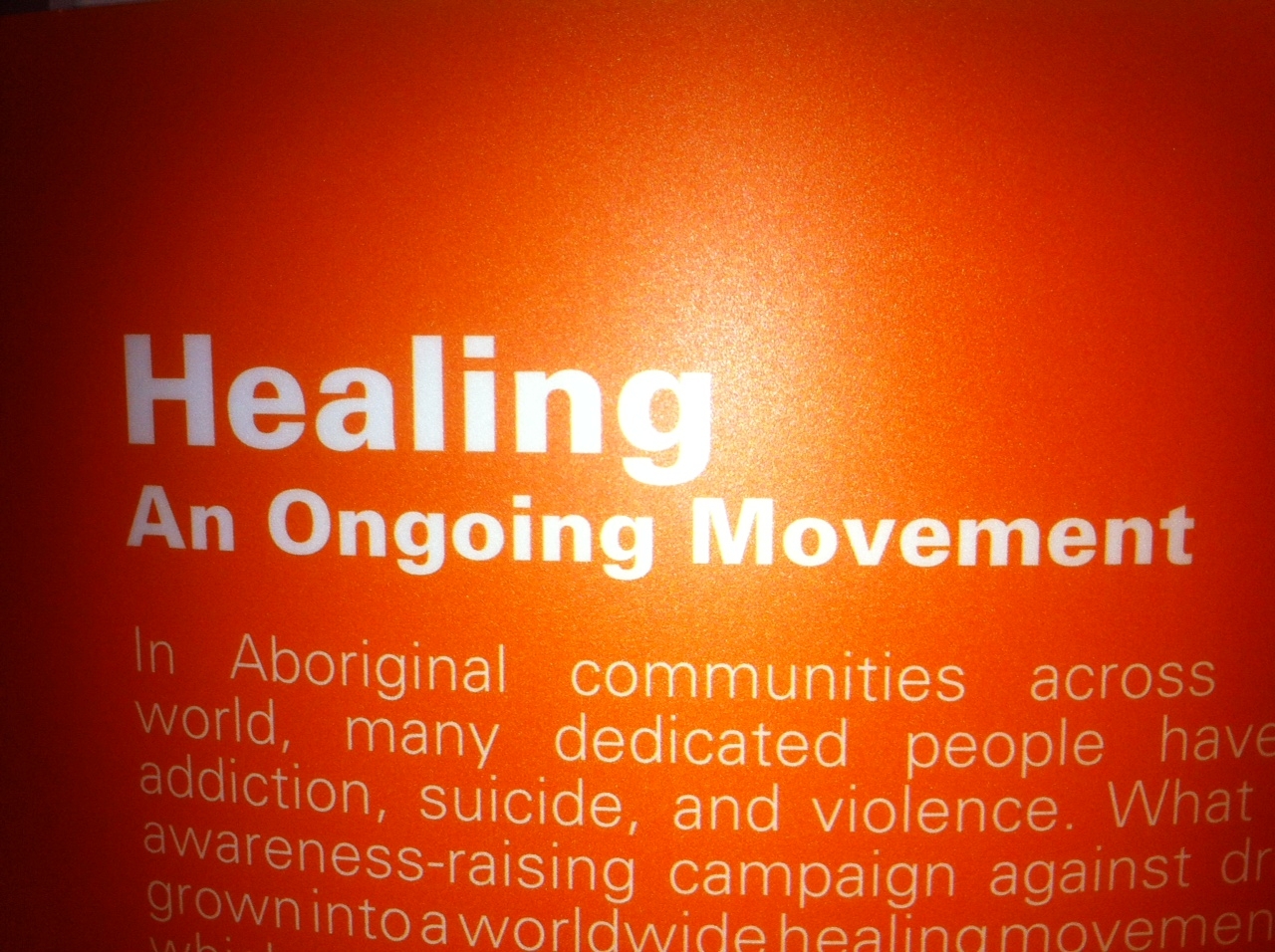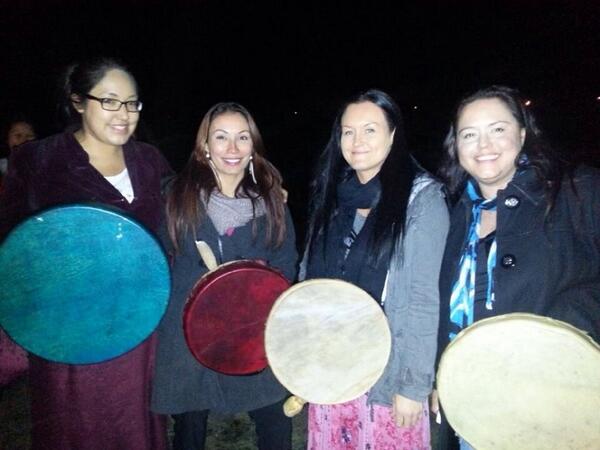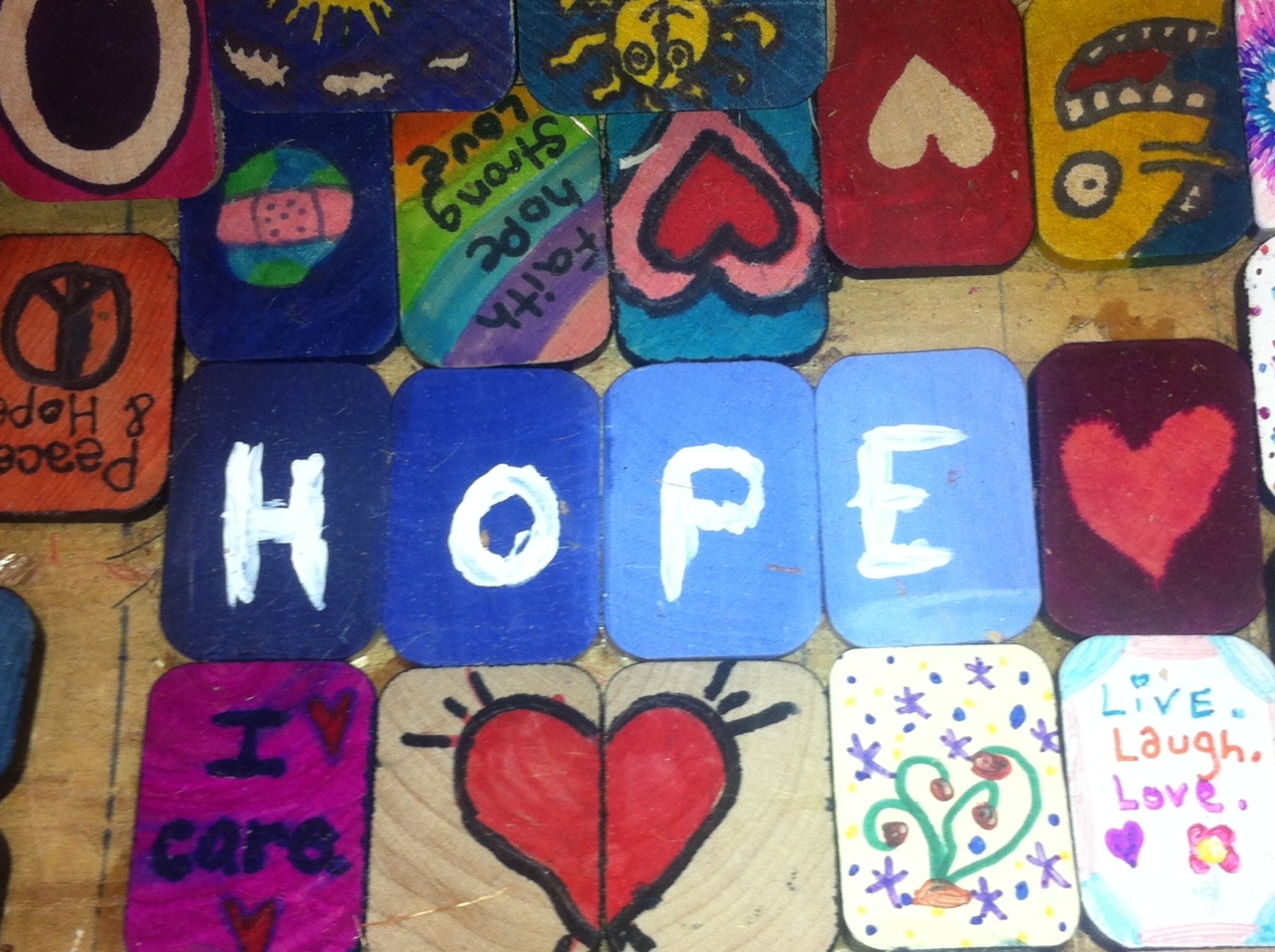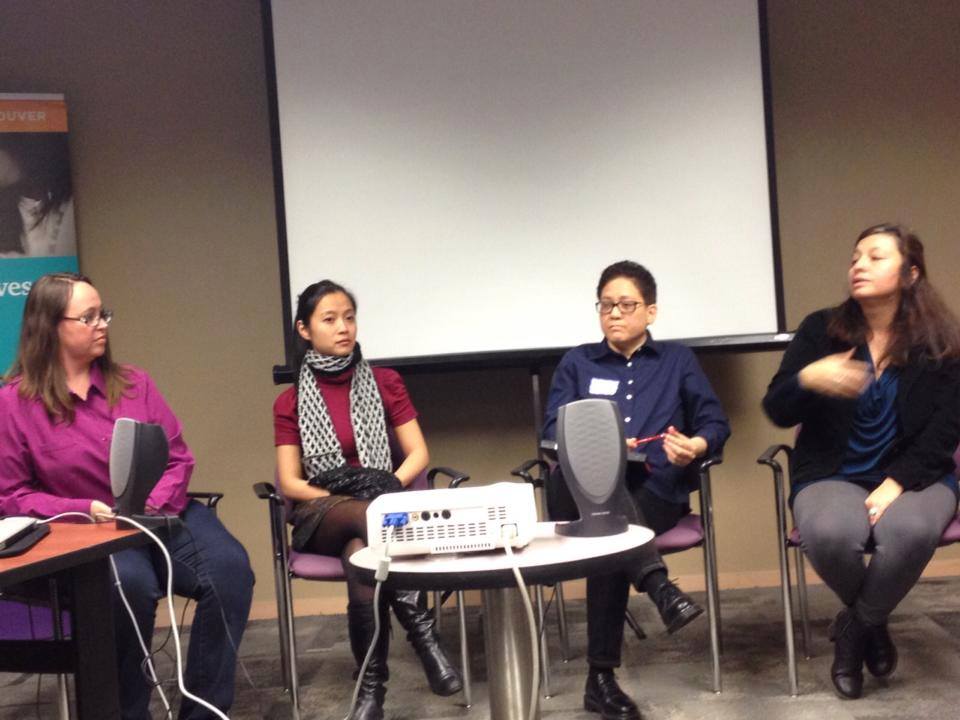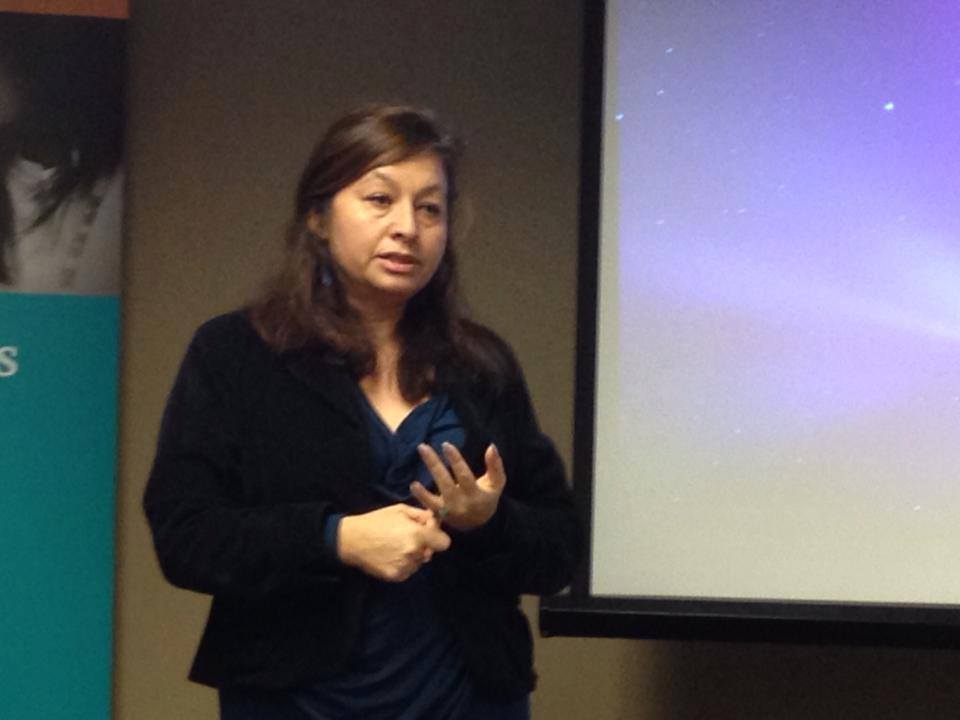The Truth about the “Truth and Reconciliation Process”
by Terriea Harris, BWSS Indigenous Women’s Outreach Counsellor
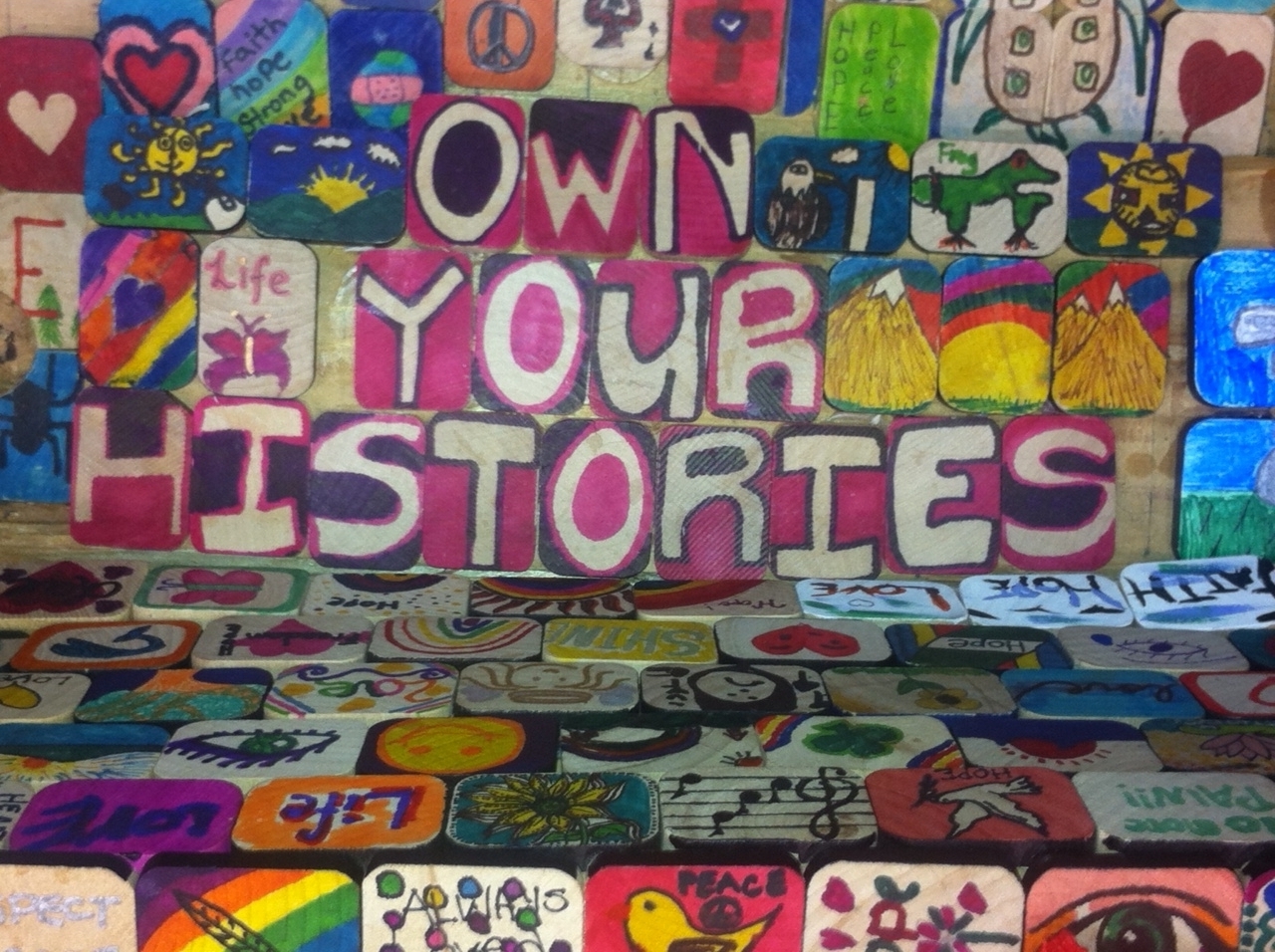
She was taken by Indian Agents from her community and put on a bus towards a destination unknown. Upon arrival, her hair was cut, her traditional clothes changed to a generic uniform, she is forbidden to speak her language, sing her songs or deal with the abuse by the hands of priest sand nuns. As she recounts her story, a camera shines its glaringly bright lights, while another media camera weaves in and out amongst the witnesses, zooming in for a close ups of reactions to the horrific details she shares. She gets to the part where she speaks of the ongoing impact of the abuse she endured and breaks down, crying uncontrollably. I cannot hold in my tears any longer, watching an elder’s body physically collapse to the point where she needs to be held up by supporters is too much too bear. A woman comes over and asks for my tissue with my tears in it; the tissues are to be burned in the sacred fire. The tears keep flowing and I acknowledge that my sadness is only secondary to my anger.
As some have argued, it should not be the responsibility of survivors to educate the rest of society of the institutionalized abuse and neglect they experienced because of racist, colonial, governmental policies executed by the church. While, the Indigenous Women’s Program at BWSS was present at the Truth and Reconciliation events held at the Pacific National Exhibition, it was not without reservation as to how the “retelling”- done in a way that more resembled “reliving” of the traumatic experience- could be re-victimizing for residential school survivors.
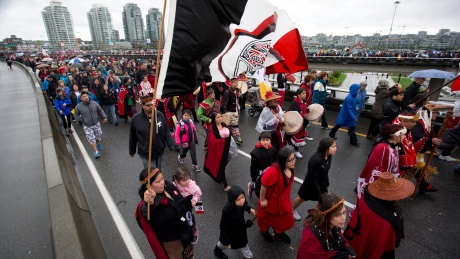 photo credit: CBC
photo credit: CBC
Being mindful of the potential impact for re-victimization, the Indigenous Women’s Program (IWP) was present throughout the events to support. We integrated traditional healing modalities such as smudging with the opportunity for women survivors to connect one-on-one throughout the 4 days. Women that access the IWP program at BWSS, as well as, women that access BWSS’ Women’s Safety and Outreach Program expressed gratitude to be able to smudge or connect whenever needed.
As the Indigenous Women’s Outreach Counsellor, part of my work is to connect with women from the Downtown Eastside (DTES) Community. Indigenous women are overrepresented in the community. When we analyze Indigenous Women’s experience in the context of the collective trauma experienced as a result of Colonization and its ongoing racist power over mandate, we have a population of women and girls that are constantly being “overlooked” thereby, making them vulnerable to predators. I believe this is why some of the women that I connect with shared that they found the truth and reconciliation process to be a positive experience. . For 4 days, during The Truth and Reconciliation, women did not have to justify coping with substances or justify the reasons why she engages in survival sex work or be asked about the pattern of abusive relationships.
Indigenous women and girls of the DTES community experience violence and abuse at disproportionate rates. When women of the community engage with our Women’s Safety and Outreach Program as to what their needs are, violence is too often viewed as “the norm”, therefore, support around her experience of violence is minimized in favour of getting her basic needs met such as housing and food. During the TRC, the spotlight was on her experience of racist Colonial practices of the residential school system and the impact it has on her today. She was given space to feel as though she would not be judged or blamed for her experience, rather her experience could potentially be understood and facilitate a dialogue within the context of Colonial practices.
This space to be “listened to” and to “not be judged” is of a high priority for all the programming we engage in at BWSS, but is fundamental to the Women’s Safety and Outreach Program. In this program, we engage with women where they are at- literally and figuratively. We recognize the many intersecting oppressions that women of the community are navigating. We provide services that are low barrier and survivor-centric. During the Truth and Reconciliation, the IWP collaborated with The Women’s Safety and Outreach Program (WSAOP), to ensure that support services were available both day and evening. Some women shared that they needed to be in nature, and the WSAOP accompanied them to Stanley Park where they could have time to reflect on the day’s events.
Last year, Battered Women’s Support Services responded to over 10,000 crisis calls from women and girls to get help and end violence. We could not provide this essential support without your contribution.

